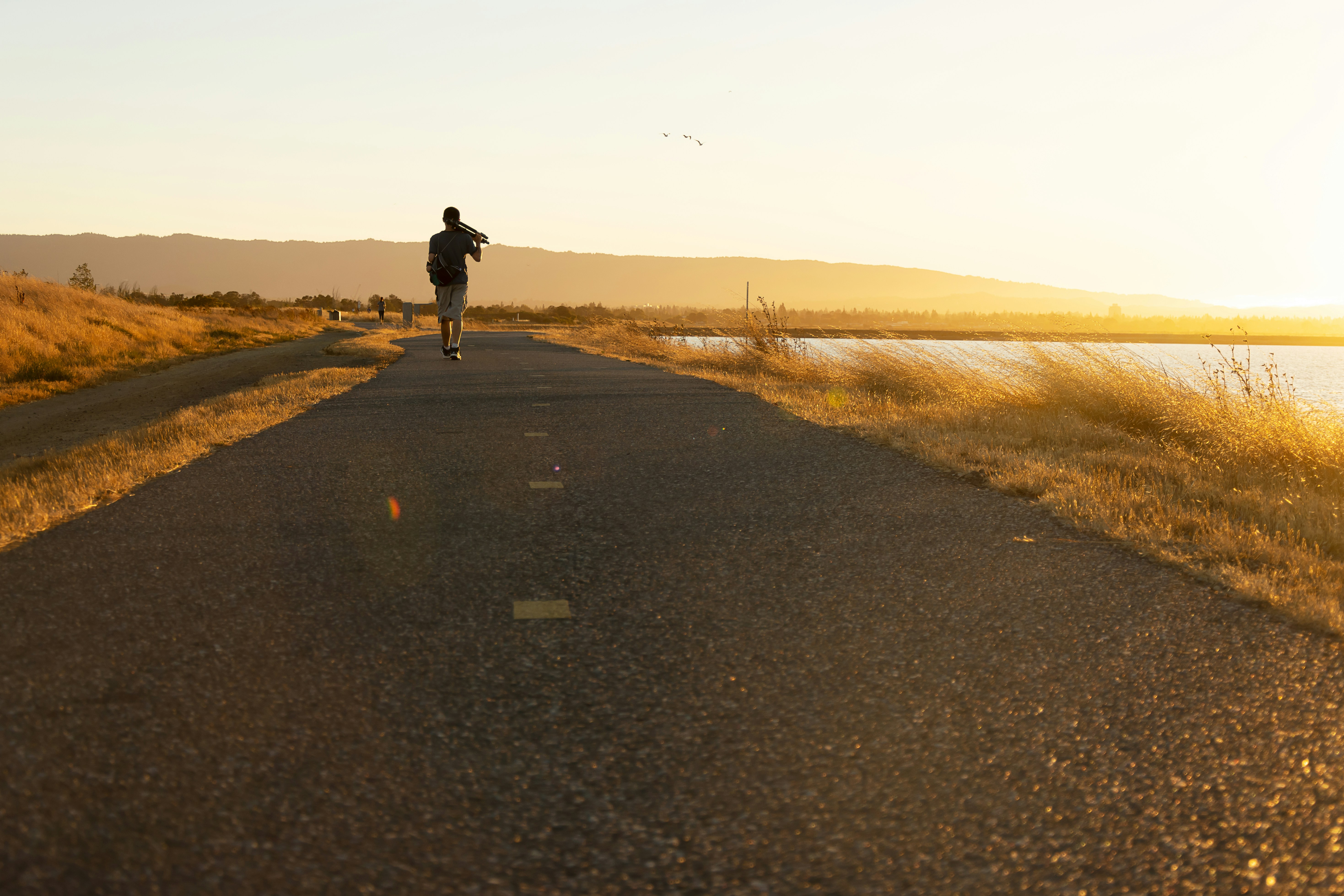Jesus tells us in today’s Gospel reading that we must renounce all possessions to be His disciples, and that we must hate father, mother, wife, children, brothers, sisters, and our own lives to follow Him. This seems drastic, and it is. Knowing that His message requires great effort and trust, Jesus asks His listeners to consider the cost: “Which of you wishing to construct a tower does not first sit down and calculate the cost to see if there is enough for its completion?” Have we considered the cost of discipleship?
On other occasions, Jesus lists the benefits of discipleship, for example during the Sermon on the Mount, as He goes through the Beatitudes. But today He extends a different invitation, an invitation to consider the costs. And just as the benefits are great, so are the costs. Jesus details the experience of the citizens of the Kingdom. They will have to give up a great deal to be a part of this Kingdom.
What does it mean to renounce our possessions, to hate our families, to hate our lives? Let’s consider the cost. When we choose to follow Jesus intentionally, wholeheartedly, comprehensively, we find that there are not many others who are willing to do the same, including many of our friends and family members. And we have to distance ourselves from what is holding us back from remaining in Christ. There are so many things in our lives that we carry with us without realizing it — even apparently neutral possessions and relationships can serve to distract us from the Kingdom. Ultimately, we will want to die to the world and live with Christ forever.
When we make this commitment and truly live it, those who have not done so will not understand. They will ask us questions, make passive-aggressive comments, and maybe throw accusations at us. Some will call themselves faithful but will have glaring inconsistencies between their beliefs and their actions. We will try to bring them over to Christ. If we stay in a state of grace, we will act as a mirror to their own faults, and they will resist it.
In the same way, the things and people we once loved before becoming more perfect disciples of Christ will become repugnant to us: We will not want to go back to those things, environments or people. To follow Christ with all our heart, soul, mind, and strength, we need to be willing to undergo this transformation, to let go of those things that keep us looking back. We will have to move forward toward heaven, knowing that as we grow, we might find ourselves less able to connect with those we love and without the possessions we once held so dear. But being with Jesus will be worth the sacrifice.
Jesús nos dice en el Evangelio de hoy que debemos renunciar a todas nuestras posesiones para ser sus discípulos, y que debemos preferirlo a nuestro padre, madre, esposa, hijos, hermanos, hermanas y nuestra propia vida para seguirlo. Esto parece drástico, y lo es. Sabiendo que su mensaje requiere gran esfuerzo y confianza, Jesús pide a sus oyentes que consideren el costo: “¿quién de ustedes, si quiere construir una torre, no se pone primero a calcular el costo, para ver si tiene con qué terminarla?” ¿Hemos considerado el costo del discipulado?
En otras ocasiones, Jesús enumera los beneficios del discipulado, por ejemplo, durante el Sermón del Monte, al repasar las bienaventuranzas. Pero hoy nos invita a considerar los costos. Y así como los beneficios son grandes, también lo son los costos. Jesús detalla la experiencia de los ciudadanos del Reino. Tendrán que renunciar a mucho para ser parte de este Reino.
¿Qué significa renunciar a nuestras posesiones, y preferir a Dios encima de nuestras familias y nuestras vidas? Consideremos el costo. Cuando elegimos seguir a Jesús intencionalmente, con todo el corazón y de forma integral, descubrimos que no hay muchos otros dispuestos a hacer lo mismo, incluyendo a muchos de nuestros amigos y familiares. Y tenemos que distanciarnos de lo que nos impide permanecer en Cristo. Hay tantas cosas en la vida que llevamos con nosotros sin darnos cuenta; incluso posesiones y relaciones aparentemente neutrales pueden distraernos del Reino. En última instancia, queremos morir al mundo y vivir con Cristo para siempre.
Cuando hacemos este compromiso y lo vivimos de verdad, quienes no lo han hecho no lo entenderán. Nos harán preguntas, harán comentarios pasivo-agresivos y tal vez nos lanzarán acusaciones. Algunos se llamarán fieles, pero tendrán inconsistencias evidentes entre sus creencias y sus acciones. Intentaremos acercarlos a Cristo. Si nos mantenemos en un estado de gracia, seremos un espejo de sus propias faltas y se resistirán.
De la misma manera, las cosas y las personas que amábamos antes de convertirnos en discípulos más perfectos de Cristo nos resultarán repugnantes: no vamos a querer volver a esas cosas, entornos ni personas. Para seguir a Cristo con todo el corazón, alma, mente y fuerzas, debemos estar dispuestos a experimentar esta transformación, a soltar aquello que nos hace mirar atrás. Tendremos que avanzar hacia el cielo, sabiendo que, a medida que crecemos, podríamos encontrarnos menos capaces de conectar con quienes amamos y sin las posesiones que antes apreciamos tanto. Pero valdrá la pena el sacrificio para estar con Jesús.
 David Dashiell is a freelance author and editor in the Nashville, Tennessee area. He has three children, a degree in theology, and enjoys writing about philosophy, theology, culture, music, and comedy. You can find his personal blog, Serious Daydreams, on Substack. He is also the editor of the anthology Ever Ancient, Ever New: Why Younger Generations Are Embracing Traditional Catholicism, available through TAN Books.
David Dashiell is a freelance author and editor in the Nashville, Tennessee area. He has three children, a degree in theology, and enjoys writing about philosophy, theology, culture, music, and comedy. You can find his personal blog, Serious Daydreams, on Substack. He is also the editor of the anthology Ever Ancient, Ever New: Why Younger Generations Are Embracing Traditional Catholicism, available through TAN Books.
Feature Image Credit: Karla Hernandez, unsplash.com/photos/man-in-black-jacket-walking-on-gray-asphalt-road-during-daytime-gS2Sk-3J00M
The views and opinions expressed in the Inspiration Daily blog are solely those of the original authors and contributors. These views and opinions do not necessarily represent those of Diocesan, the Diocesan staff, or other contributors to this blog.

